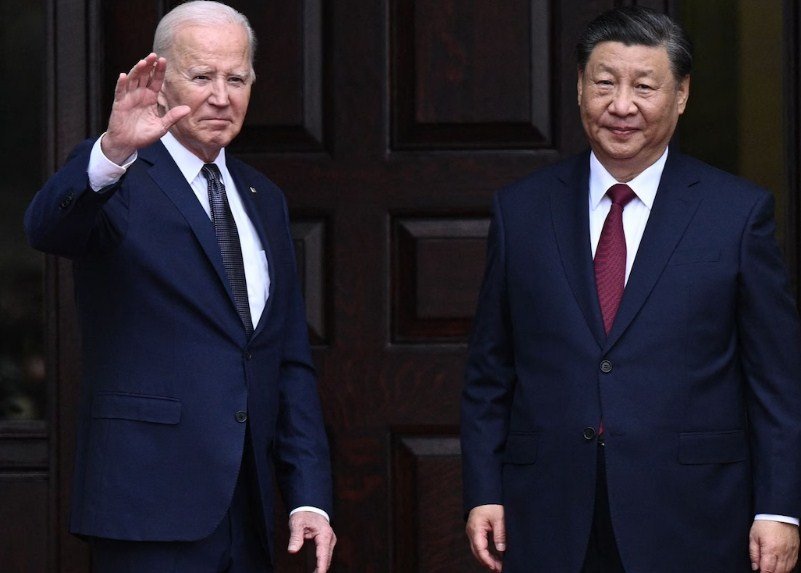The first face-to-face summit in over a year
US President Joe Biden and Chinese leader Xi Jinping held their first in-person meeting in more than a year on Wednesday, November 15, 2023, at a historic estate near San Francisco. The meeting lasted for about four hours and covered a range of issues, from trade and climate change to military and human rights.
The two leaders agreed to resume high-level military communication, which had been severed by China after US House Speaker Nancy Pelosi visited Taiwan in 2022. They also agreed to work together to combat the flow of fentanyl, a synthetic opioid, from China to the US, which has contributed to the opioid crisis in America.
The meeting was seen as a rare opportunity to ease the escalating tensions between the world’s two largest economies, which have been locked in a bitter rivalry over trade, technology, security, and influence. Relations plummeted when the US accused China of sending a spy balloon across its airspace earlier this year, but have since started improving after a series of phone calls and diplomatic exchanges. Both sides expressed their willingness to cooperate on areas of mutual interest, while acknowledging their differences and competing interests.
A positive and comprehensive dialogue
According to statements from both the US and China, the meeting was positive, constructive, and comprehensive. Biden “emphasized that the United States and China are in competition,” the White House statement said, and that the US “would always stand up for its interests, its values, and its allies and partners.” He also raised concerns about China’s actions in Xinjiang, Hong Kong, and the South China Sea, and reiterated the US’s commitment to the One-China policy, which acknowledges Beijing’s claim over Taiwan but does not recognize it.
Xi, on the other hand, stressed that China and the US should respect each other’s sovereignty, security, and development interests, and avoid confrontation and conflict. He also told Biden that China was ready to be a “partner and friend” to the US, and that the two countries should seek win-win cooperation and common development. He urged the US to respect China’s core interests and major concerns, and to refrain from interfering in China’s internal affairs.
A signal for US business in China
One of the key outcomes of the meeting was the signal it sent to the US business community in China, which has been facing uncertainty and challenges amid the crackdown on various industries and the use of exit bans and detentions against some executives. Xi invited Biden to join him for a dinner with top US business leaders, including Elon Musk of X (formerly known as Twitter), Tim Cook of Apple, and Larry Fink of BlackRock. He also assured them that China would continue to open up its market and create a fair and transparent business environment for foreign investors.
Biden, meanwhile, pressed Xi to follow through on the “phase one” trade deal that China struck with the Trump administration, which aimed to reduce the trade imbalance and address issues such as intellectual property rights and forced technology transfer. He also brought up the coronavirus pandemic and communicated the “important role that transparency plays” in addressing global health, the White House official said.
A step forward, but challenges remain
The meeting was widely seen as a step forward in stabilizing and improving the US-China relationship, which has been strained by a series of disputes and crises. Both leaders agreed to maintain regular communication and dialogue, and to work together on global challenges such as climate change, nuclear proliferation, and regional conflicts. They also agreed to establish a working group on the 2024 Winter Olympics in Beijing, which some US lawmakers have called for boycotting over human rights concerns.
However, the meeting also highlighted the deep and persistent differences and mistrust between the two sides, which are unlikely to be resolved anytime soon. The US and China have divergent views and interests on issues such as Taiwan, human rights, cybersecurity, and democracy, and both are vying for influence and leadership in the Indo-Pacific region and beyond. The meeting did not produce any major breakthroughs or agreements, and the risk of miscalculation and escalation remains high.

